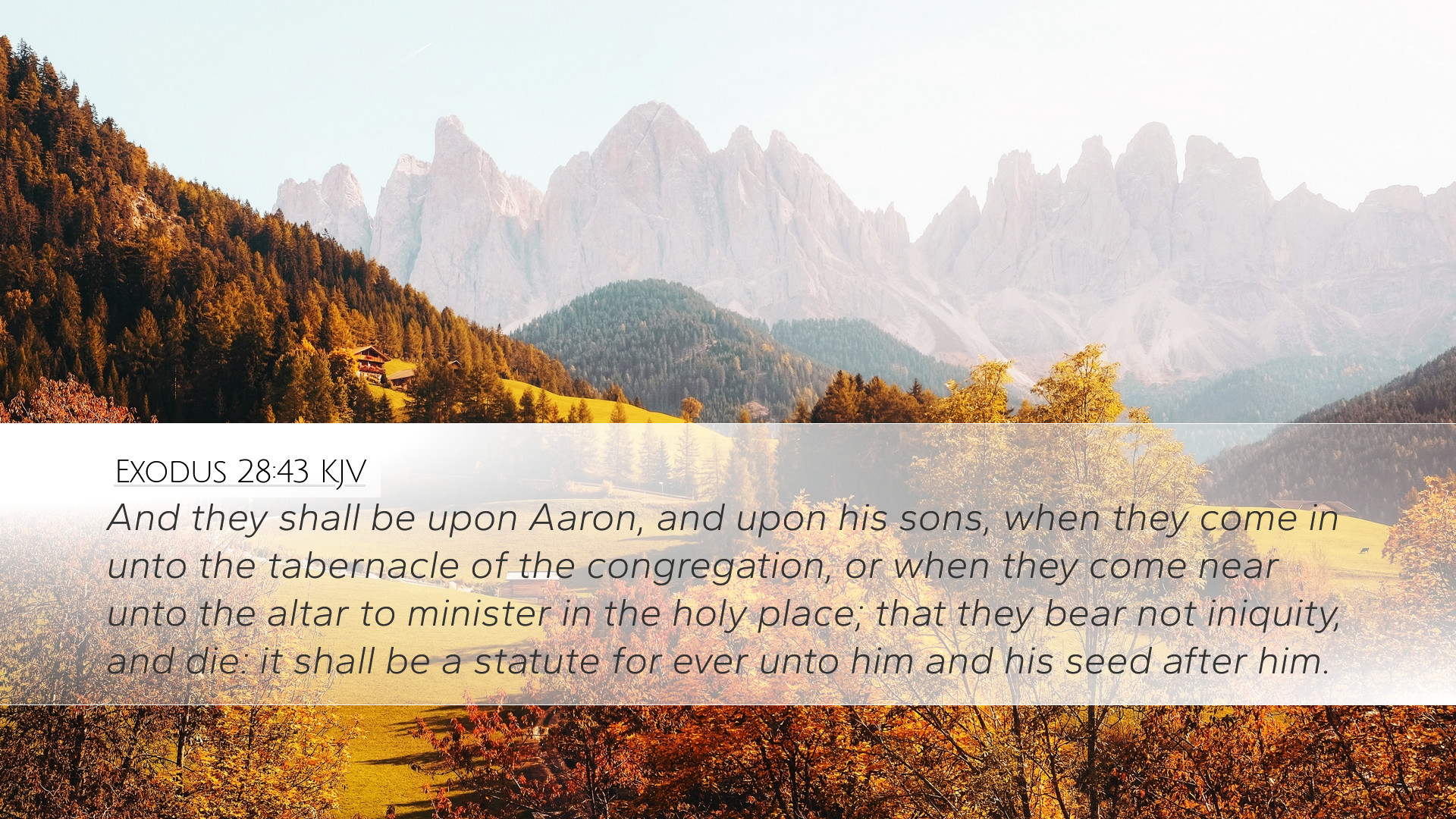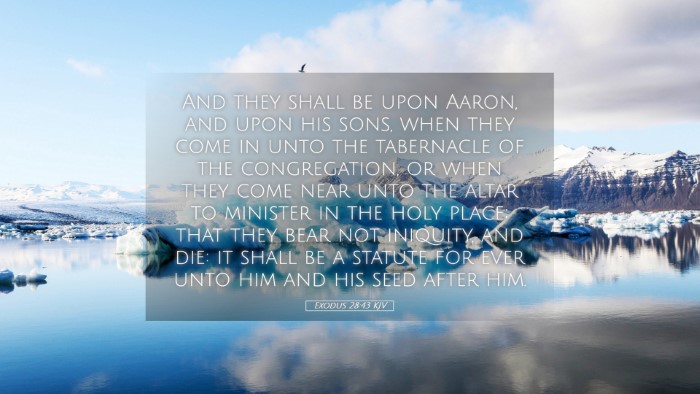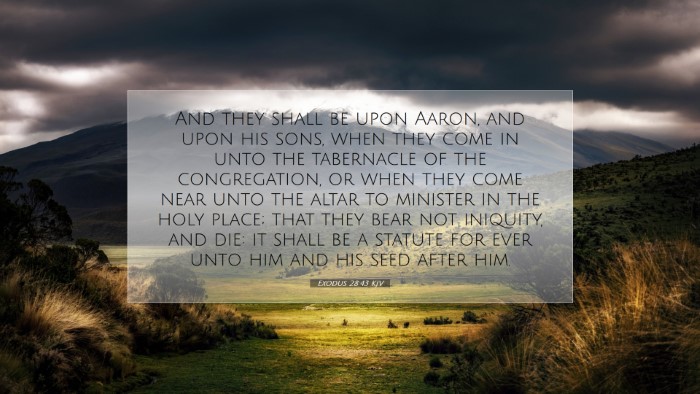Commentary on Exodus 28:43
Exodus 28:43: "And they shall be upon Aaron, and upon his sons, when they come in unto the tabernacle of the congregation, or when they come near unto the altar to minister in the holy place; that they bear not iniquity, and die: it shall be a statute for ever unto him and his seed after him."
Introduction
The text of Exodus 28:43 stands on the profound grounds of priestly garments and their role in the sacred service of God. This passage is situated within the context of the instructions given to Moses regarding the attire that the priests, particularly Aaron and his sons, are to wear as they minister before the Lord in the tabernacle. The garments serve not only a functional purpose but also a theological one, symbolizing holiness, duty, and the gravity of bearing the responsibilities that come with divine service.
The Importance of Garments in the Priestly Role
The significance of the priestly garments cannot be overstated. Matthew Henry suggests that these garments were not merely superficial clothing but were emblematic of the character and duties of the priesthood. They were to signify righteousness and to reflect the holiness required of those who approach God. Barnes notes that the garments signify the dignity of the priesthood, which stands as mediators between God and the people.
- Symbol of Holiness: The garments serve as a reminder of the divine calling and the need for holiness in approaching God.
- Representation of Authority: The attire marks the distinction of Aaron and his sons and establishes their authority in spiritual matters.
- Ministry Preparation: Each piece of clothing prepared the priest mentally and spiritually for the tasks ahead.
Practical Implications of the Statutes
This verse indicates that the priests are to wear these garments in the tabernacle or at the altar to fulfill their duties. Clarke emphasizes that the act of putting on the garment was a symbolic preparation for ministry, enabling Aaron and his sons to be mindful of the holiness required in their service. The persistent reminder of their attire is crucial as it carries implications for their behavior and accountability before God.
- Awareness of Responsibility: Wearing the garments heightened their awareness of the weight of their responsibilities.
- Prevention of Sin: The warning “that they bear not iniquity, and die” serves as a solemn reminder of the peril of unworthiness before God.
- Accountability to Generations: The phrase “it shall be a statute for ever” highlights the ongoing nature of this divine mandate passed down to successive generations of priests.
Theological Reflection
This verse stirs profound theological reflections on the themes of divine holiness and human sinfulness. Henry observes that unworthiness in the presence of God comes with severe consequences, as evidenced in the phrase “bear iniquity, and die.” This serves as a stark warning to all in positions of spiritual leadership.
Application for Modern Ministry
The essence of Exodus 28:43 extends beyond ancient Israel and speaks profoundly to contemporary ministry. Today’s leaders are called to embody the attributes of Christ and to live lives set apart for God’s purpose. Just as the priests were to wear their garments, modern believers are to clothe themselves with the virtues of Christ, as Paul writes in Colossians 3:12-14. The call to holiness and accountability remains ever relevant.
- Servants of the Living God: Modern ministers are charged with the responsibility of representing God before His people while preserving their personal holiness.
- Leadership and Example: As leaders within the church, there is a need for accountability, integrity, and a commitment to God's standards.
- Focus on Eternal Values: In a culture that often downplays the seriousness of spiritual matters, the weight of this passage reminds us to prioritize our relationship with God over worldly concerns.
Conclusion
Exodus 28:43 is a verse replete with meaning and significance. As it outlines the role of garments in the priestly ministry, it invites pastors, students, theologians, and Bible scholars to explore the intersections of divine mandate, human duty, and the necessity of holiness. Understanding this scripture in concert with insights from historical commentaries—such as those from Henry, Clarke, and Barnes—encourages a deeper, multifaceted appreciation of our standing before a holy God and the diligence required in fulfilling our callings.


